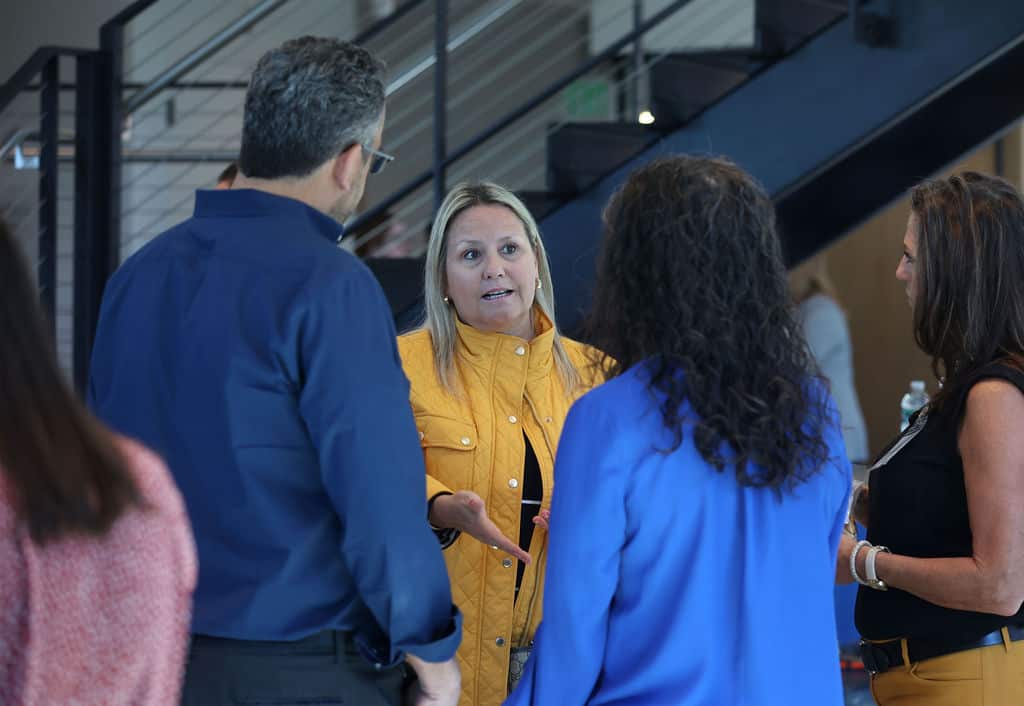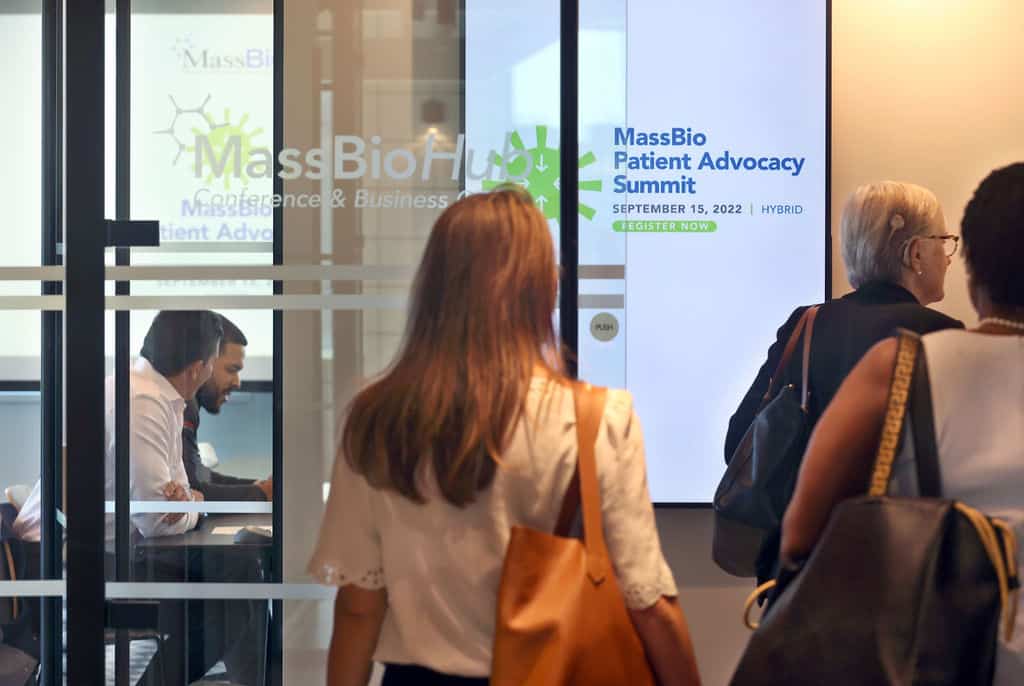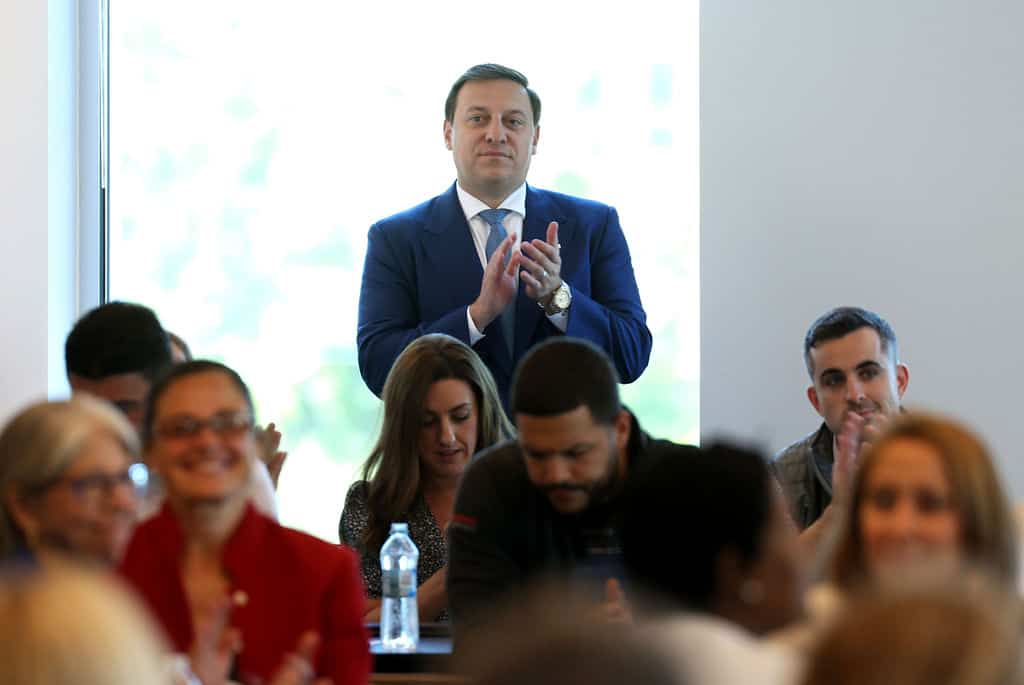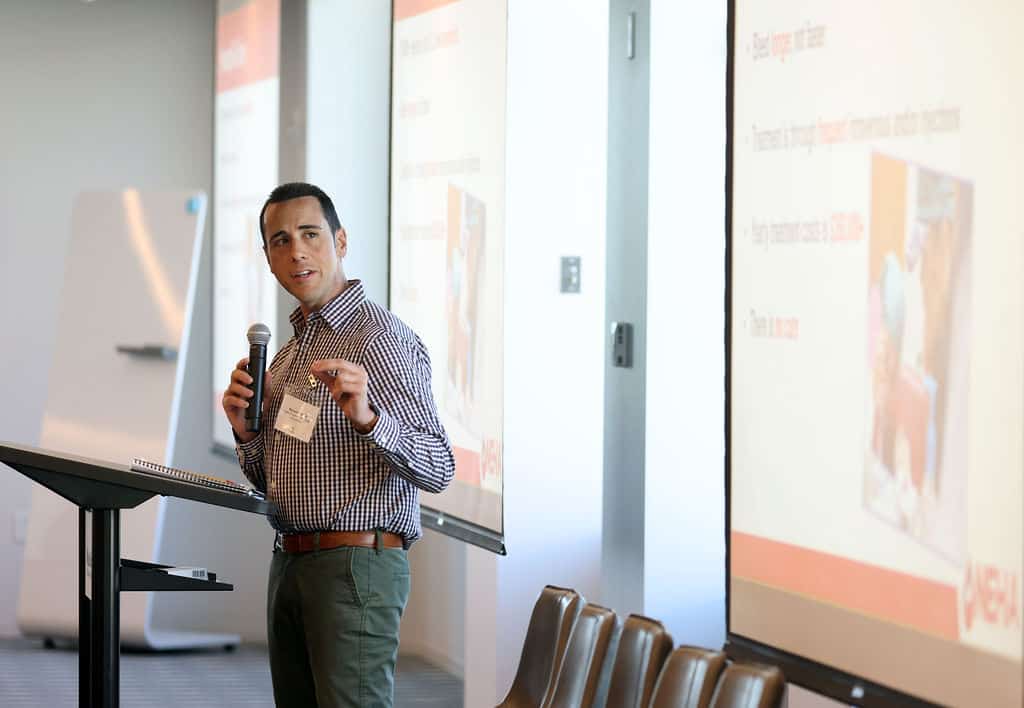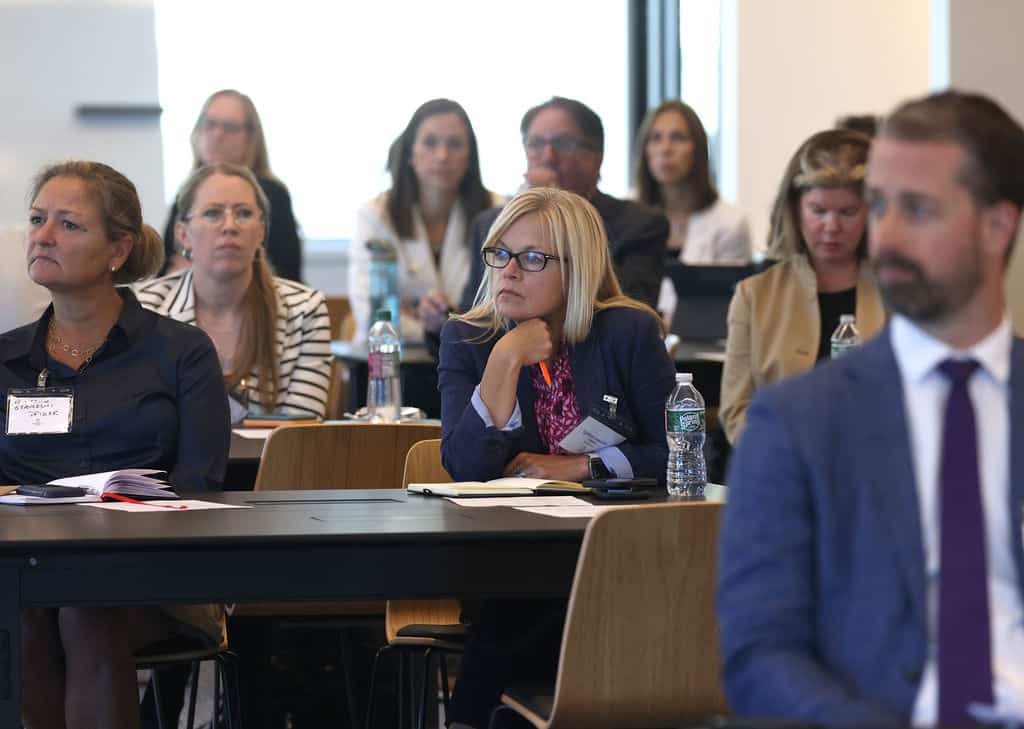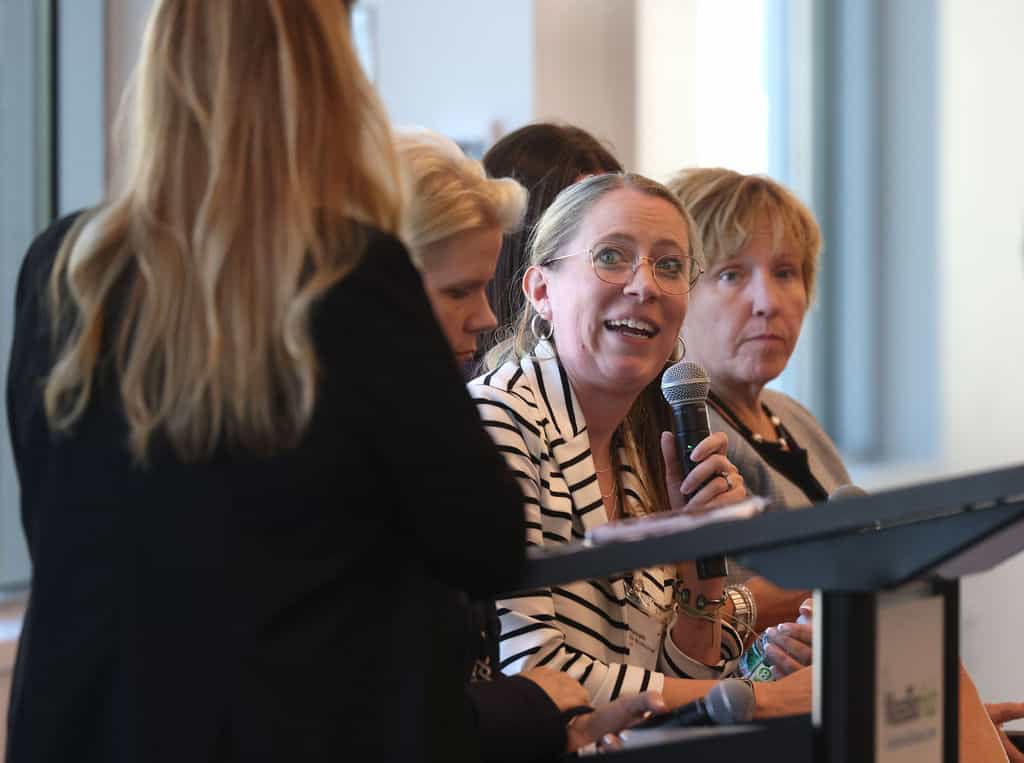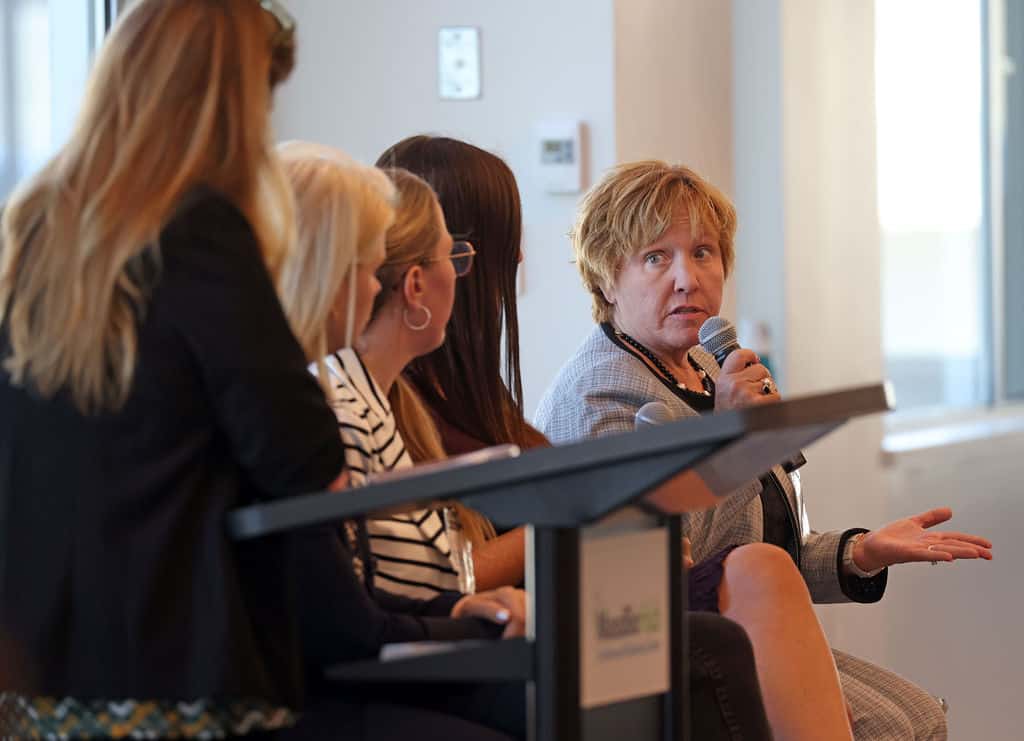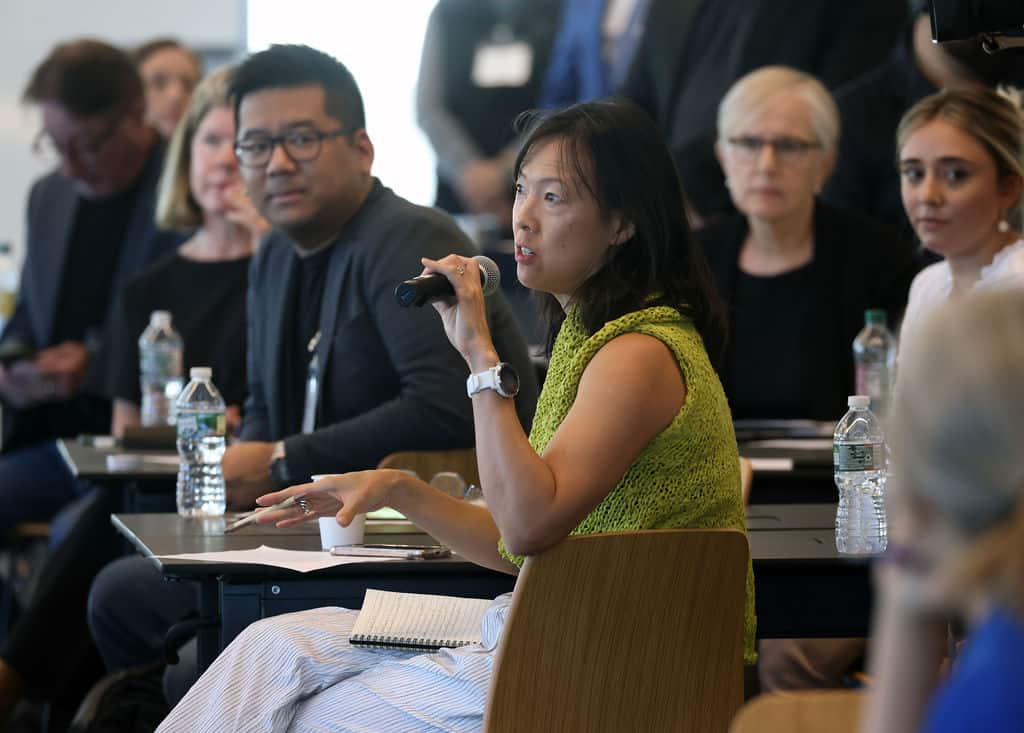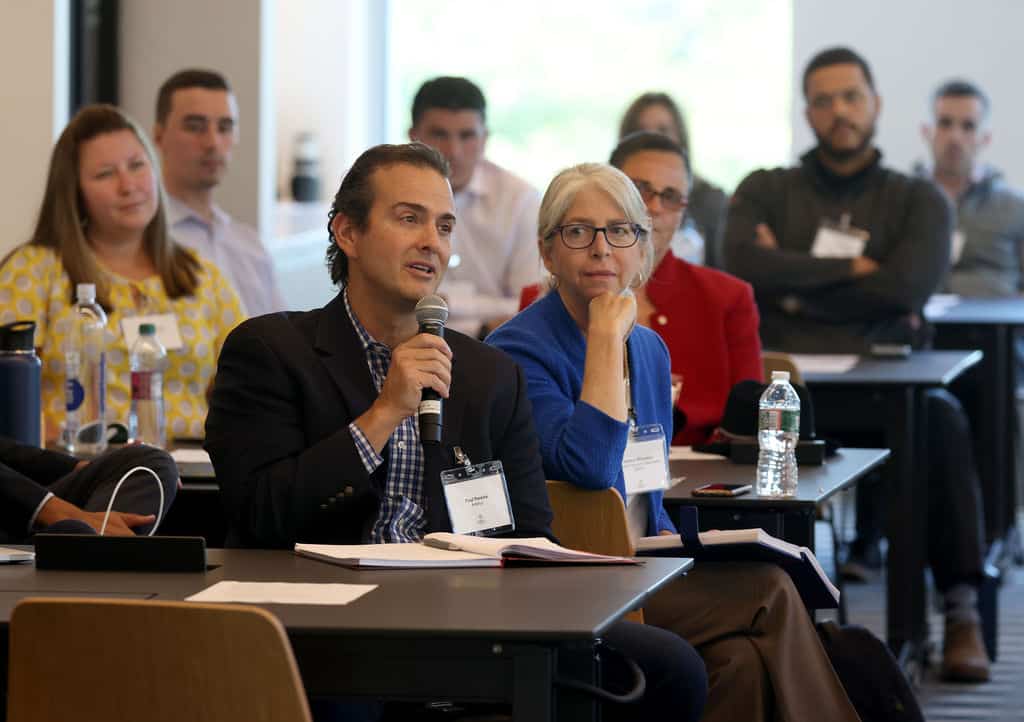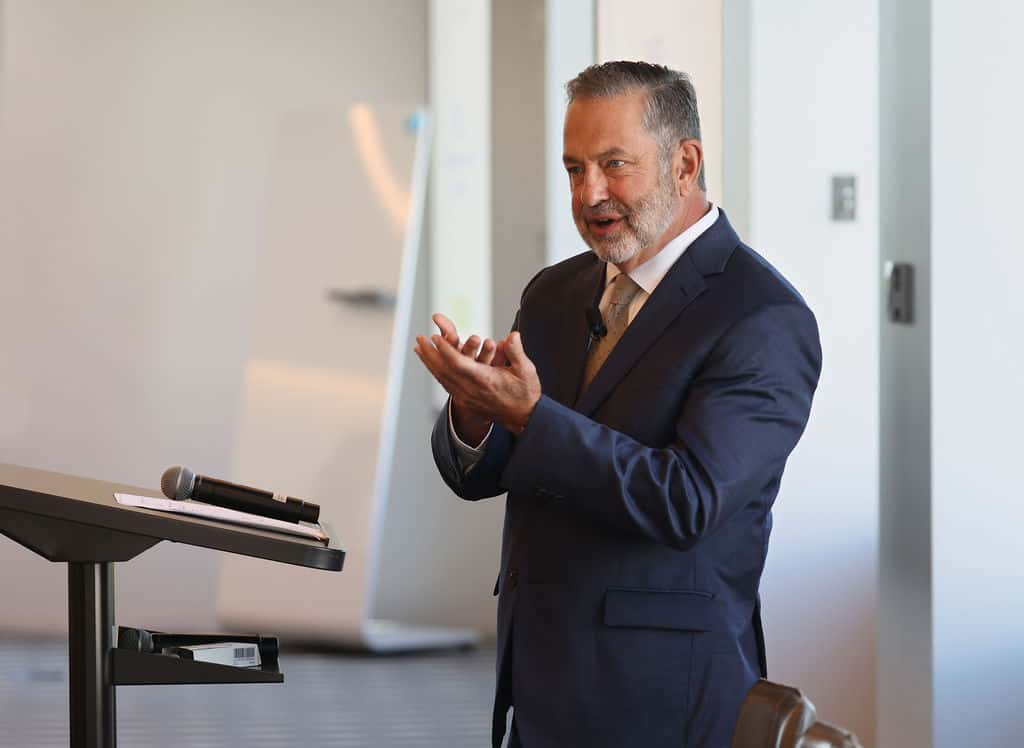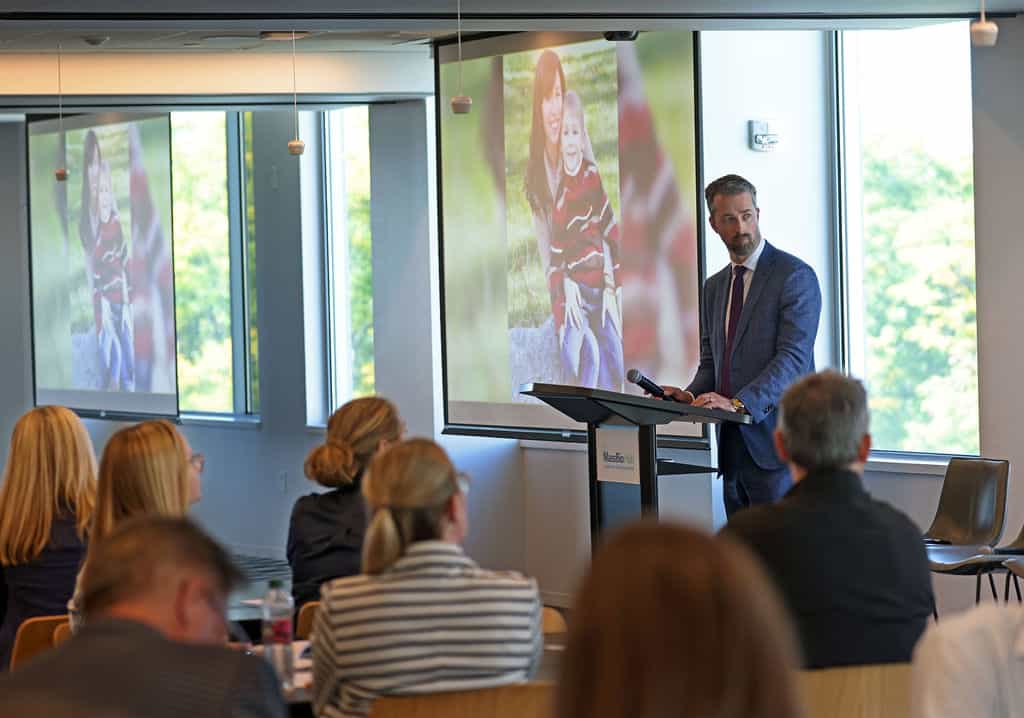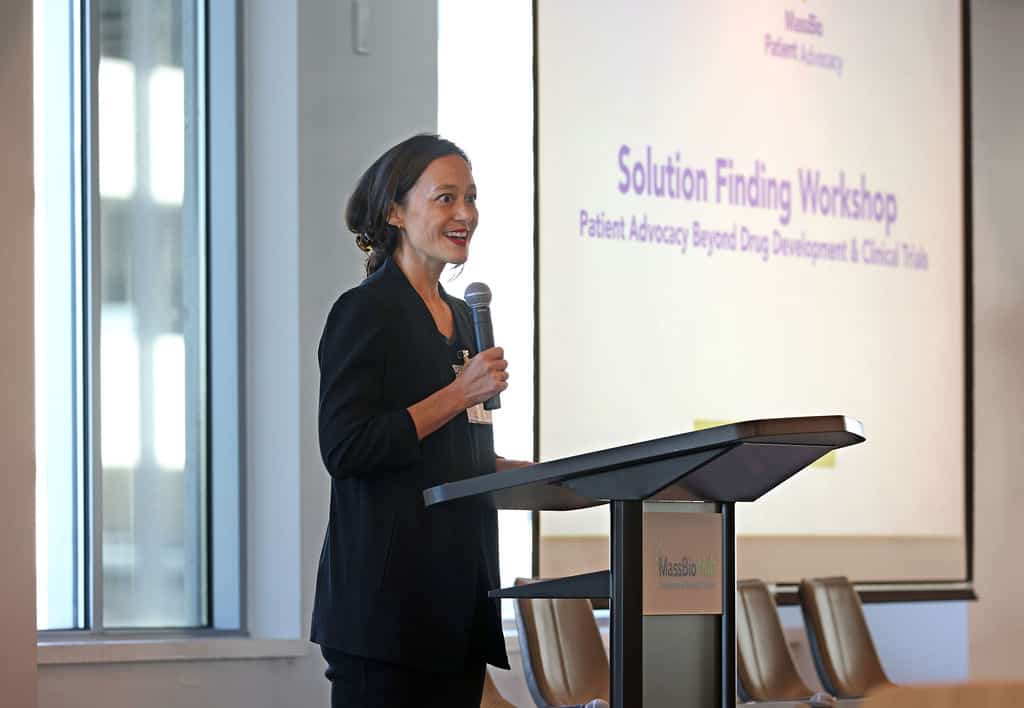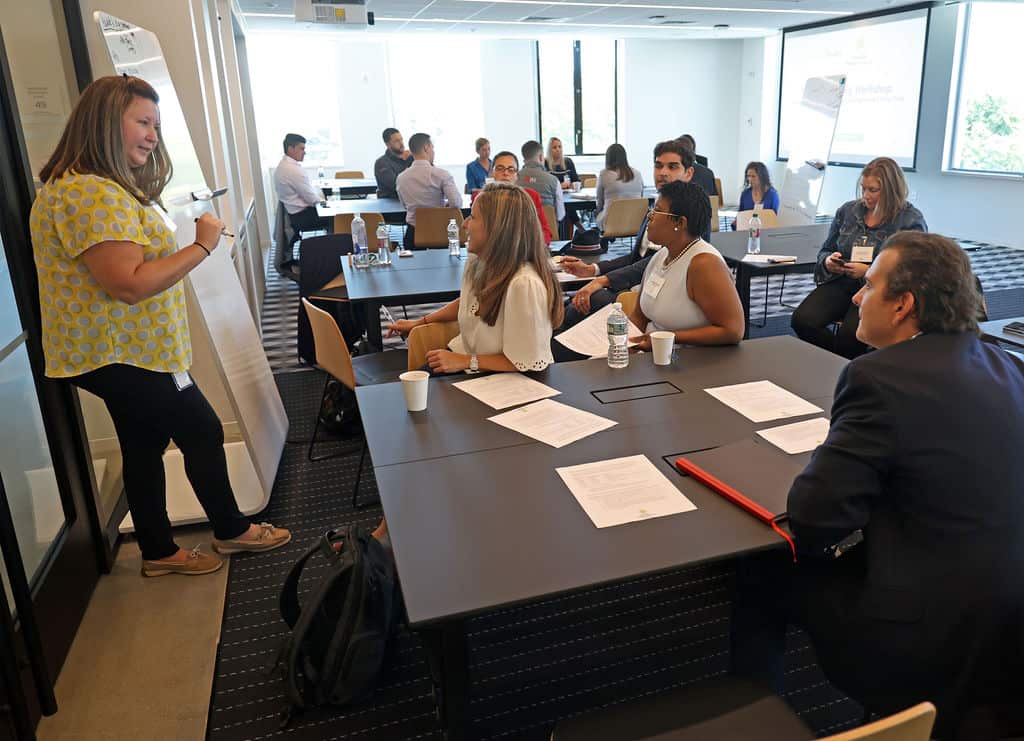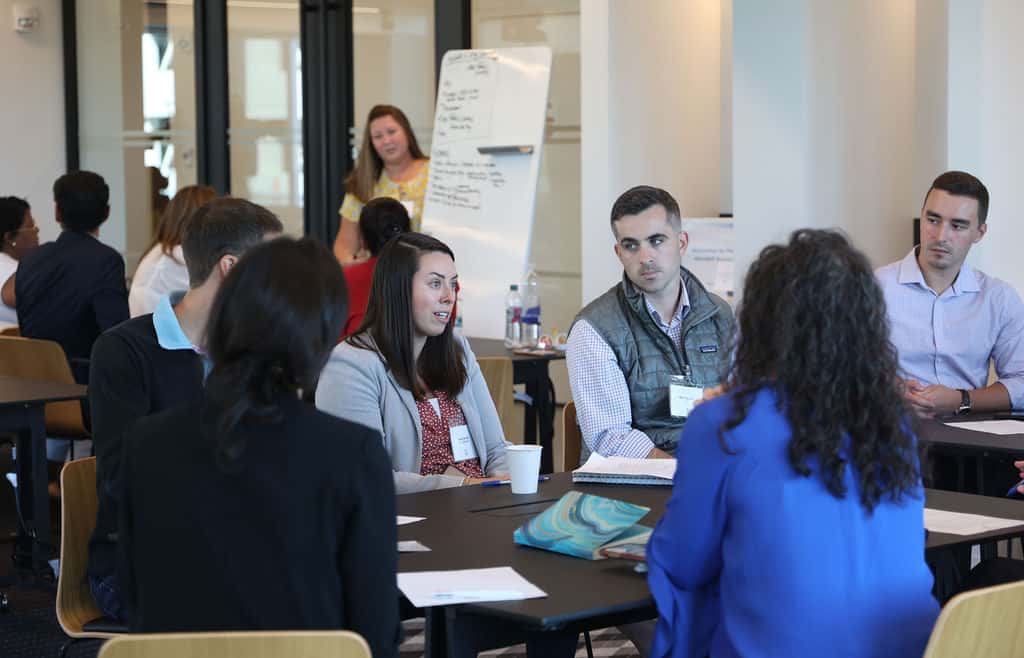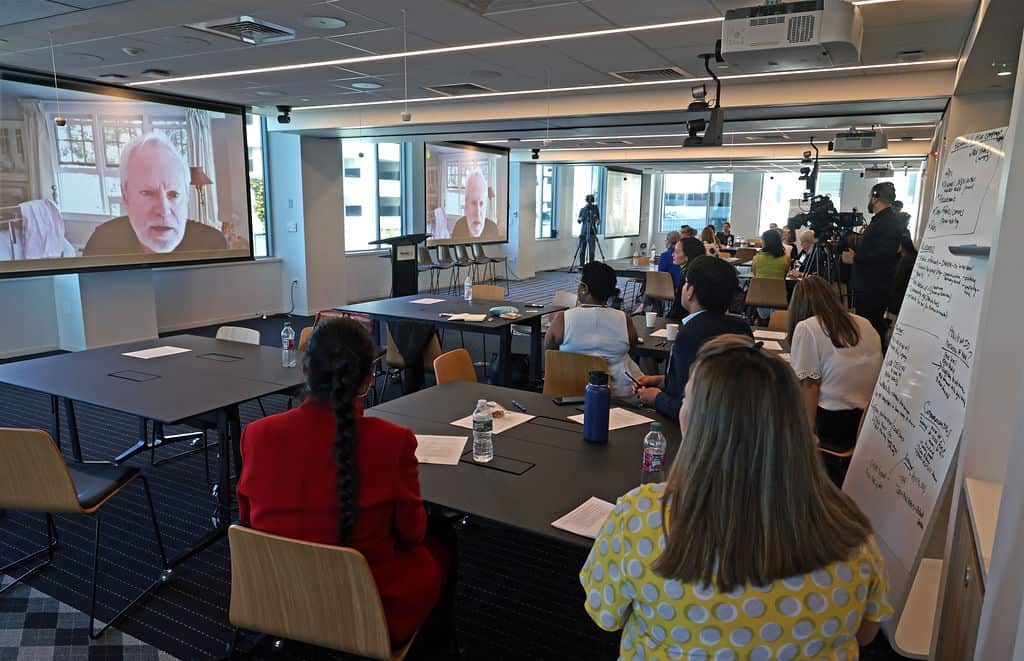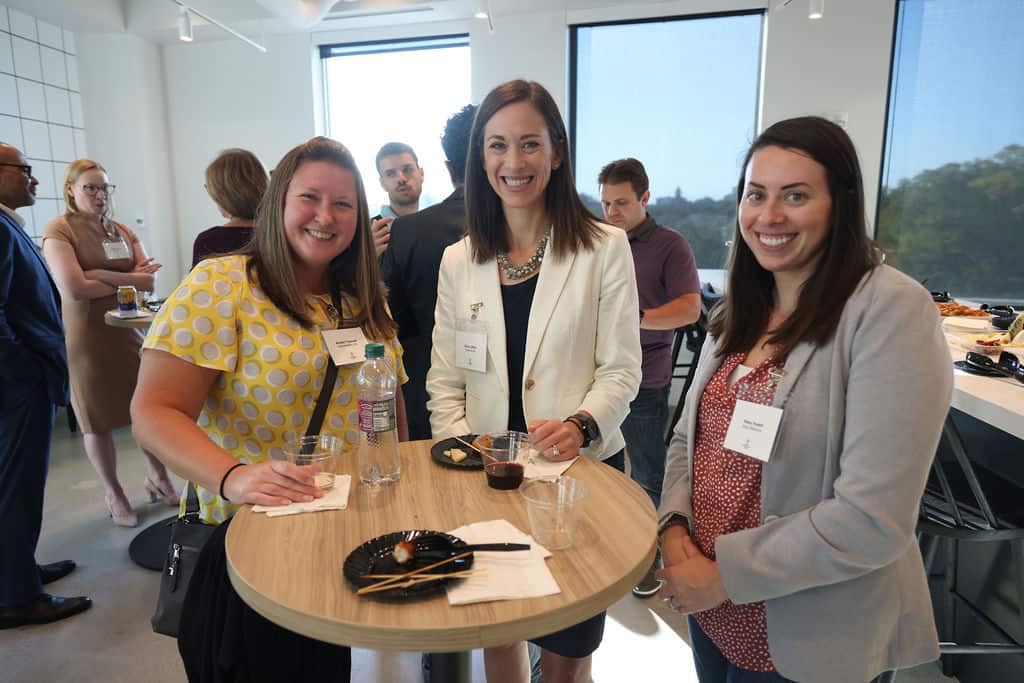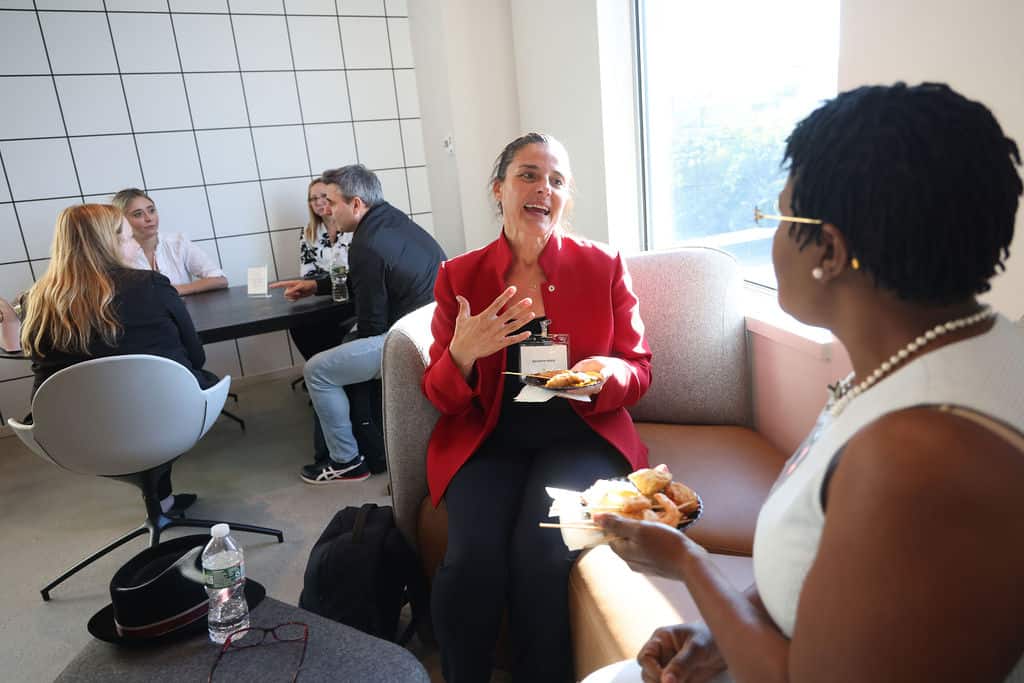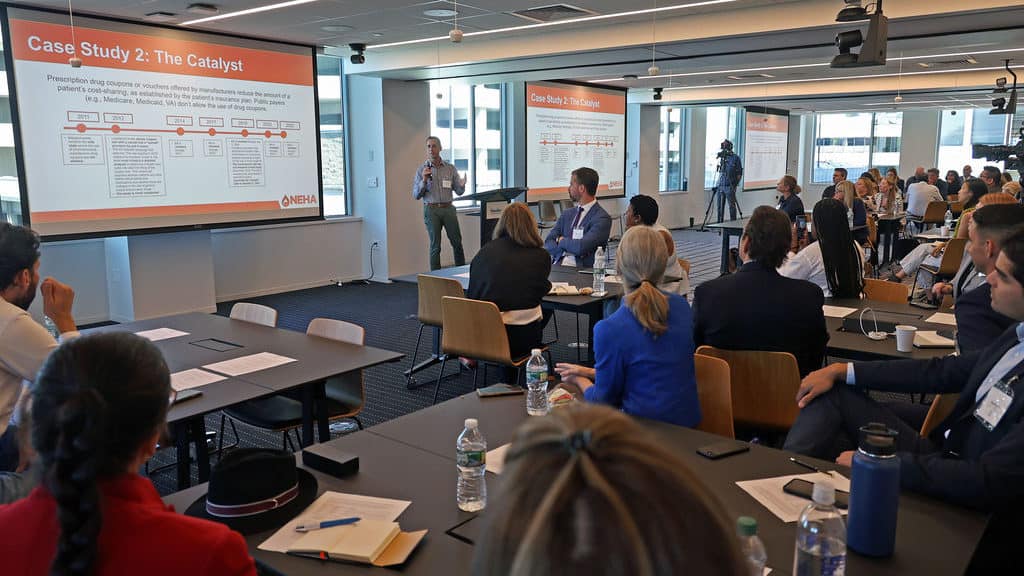
Emcee Mike Nikitas stated it perfectly when he kicked off this year’s MassBio Patient Advocacy Summit by referring to it as “one of our most meaningful events of the year.” Bringing together people from different areas of the patient advocacy community both in-person and online, the summit featured inspiring and informative keynotes, a lively panel discussion, and a hands-on workshop, all with the goal of helping everyone to be “patient driven in all the ways that patient advocates can help beyond drugs and therapeutics,” added Nikitis.

MassBio President and COO Kendalle Burlin O’Connell welcomed the full room of attendees in the MassBioHub by reminding everyone that Massachusetts “has the most robust early-stage biotech ecosystem anywhere” composed of companies that “bring hope to patients from around the globe.” She pointed out that though Massachusetts is just the fourteenth largest state by population, the Commonwealth is second only to California for the number of drug candidates in development, and that MassBio as a patient driven organization is working to ensure that the patient voice is at the core of every conversation, from clinical trial design to patient access to affordability.

A key aspect of patient advocacy is delivering the personal stories of patients and caregivers, and Rich Pezzillo, the executive director of the New England Hemophilia Association, started there for his keynote address, walking through his family’s history with the blood disorder. He then delivered some practical advice for effective patient advocacy, using the analogy of a jigsaw puzzle to speak to relationships and two case studies. He asked everyone to ponder the question “What is your puzzle piece?” and to take steps to help organizations tell stories, foster introductions, think outside the box, and create legislative opportunities. He concluded by asking people to put aside talking about sponsorships and dollar signs to prioritize the partnerships that “don’t cost money” and that are “the value of what drives us forward.”
The afternoon continued with an interactive panel discussion on how patient organizations and industry can work together in advocating for legislation of mutual benefit, moderated by Marcie Reeder, director of Global Patient Affairs at Blueprint Medicines. Gretchen Hover, founder and managing partner for Imbue Partners, opened the discussion by saying that reframing patients as powerful allies is one place for the industry to start welcoming diverse groups of patients into clinical discussions—encouraging patients and caregivers to “recognize that patient voice, bring it forward, and start to engage in ways that perhaps you didn’t feel you deserved before.”
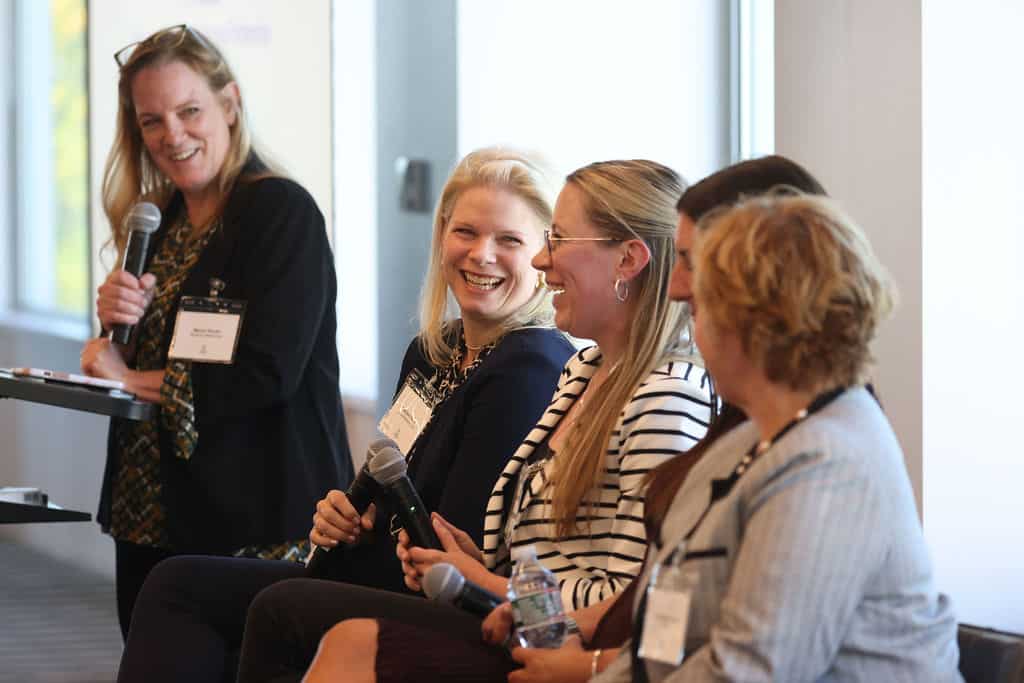
Courtney Horvath, PHD, DABT, the Global Head of Strategy, Operations and Planning for Translational Medicine at NIBR, said that the clinic setting must be a greater source of information for patients and their families. “Embedding some of the ‘where to start’ information in the clinic when a diagnosis is made is key.” She added that involving the patient must be a long-term commitment for companies, going beyond the one-way conversation when patients are invited to share their stories. Hannah Kane, who represents Shrewsbury, Massachusetts, in the state House of Representatives, advised patient advocates who come to Beacon Hill to first tell elected officials “what is going on in your life and how you got there”—the personal stories “that imprint on us as policymakers”—and then transition to a concise argument about what needs to be changed or what isn’t working. “Get patients involved early,” offered Tracy Baroni-Allmon, V.P. and Head, Global Oncology Access & Reimbursement Policy, Takeda, adding that patients should “use the passion, anger, sadness, pain, as you work your way through your cancer journey or your hemophilia journey or your sickle cell journey to really recognize the value of developing those relationships at the [Capitol or Beacon] Hill level.”
“There is a need here to get the patient voice better integrated into the decision-making process…often at the Statehouse or in Capitol Hill,” explained MassBio Chief Corporate Affairs Officer Zach Stanley in a pitch for the Cures for the Commonwealth campaign. Stanley said that the effort centers around sharing the story of the biotech industry, and sharing the stories of patients, as well as encouraging legislation that protects innovation, but more importantly that ensures “patients can afford and access the drugs they need to stay healthy.” He asked companies to get involved by signing up, identifying patients who are willing to share their stories, and to fund the digital marketing side of the campaign.
A professional development workshop walked through four real-world scenarios to test the awareness of attendees, and to help everyone learn from each other. “These are the tricky questions that you get,” said Kim Clark, a patient advocacy consultant, when you are on the frontlines of the patient advocacy group. “The most challenging situations can yield the highest rewards.” Individuals broke out into groups for brainstorming sessions and reported back to the whole crowd on findings and thoughts. Each case study demonstrated myriad ways patient advocates provide support beyond therapeutics, and participants discovered many ways to leverage relationships with and services from for-profit, nonprofit, government agencies, and other partners.
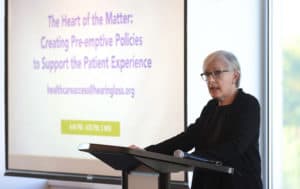
Speech and language pathologist Peggy Ellertsen wrapped up the conference speaking to her own experience as a woman living with a disability, and of organizations empowering patients to be successful advocates. She cited the example of the American Speech Language Hearing Association integrating the International Classification of Functioning, Disability and Health into their Scope of Practice in Speech-Language Pathology, “broadening our focus to address not just health conditions, but the areas of functioning impacted by health conditions that matter most in the life of the individual.” Ellertsen noted the experience of patients with disabilities being reluctant to file a complaint about the lack of accommodations in the delivery of their healthcare “because of the perception that the process is complex, or because there is reticence about challenging the perceived balance of power between physician and patient,” demonstrating the need to build empowering skill sets for self-advocacy as well as advocating for public policy. She applauded patient advocates for creating the alliances that get results, and for supporting patients in finding their own voices, and doing the practical work of developing scripts, strategies, and tactics. “Self-efficacy is fostered by opportunities to practice behaviors, watching other people do it, and also lots and lots of encouragement.”
MassBio appreciates all that the patient advocacy community does to elevate the patient voice. MassBio also thanks the sponsors of this year’s Patient Advocacy Summit: Astellas, Takeda, ThermoFisher Scientific, Blueprint Medicines, BlueRock Therapeutics, Sanofi, Vertex, Pfizer, Sage Therapeutics, Sarepta Therapeutics, and Sunovion.

